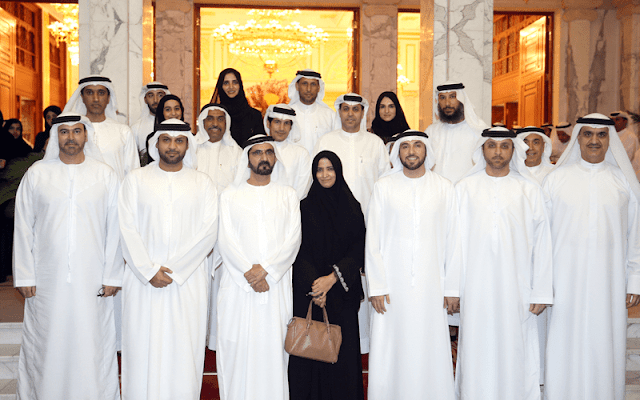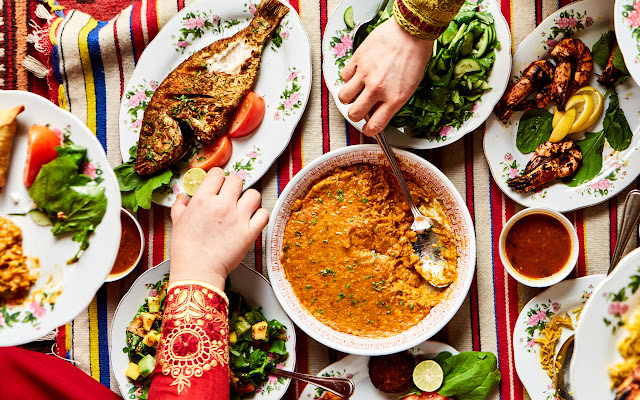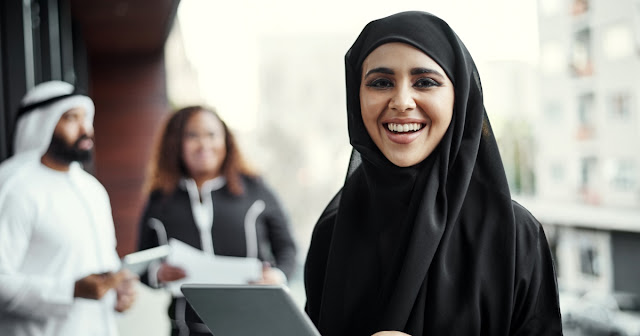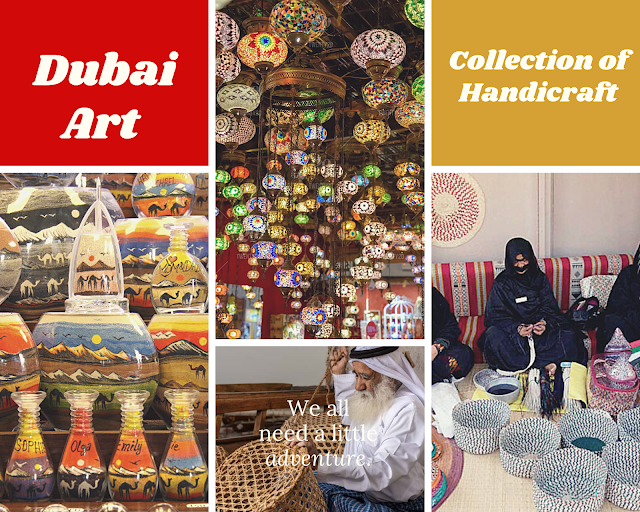Traditional Emirati Clothing/ Dress
With around 200 nationalities represented in Dubai, how people dress is incredibly varied –yet the traditional attire of the UAE is bold and distinctive. You can see it all across the city.
Emirati national dress is a symbol of pride and identity that has been designed with the dual intent of providing comfort and adhering to religious beliefs. In Dubai, men wear an ankle-length, loose-fitting garment made of white cotton, known as a kandora or dishdasha. A ghutrah covers the head and is held in place by the agal, a type of black cord. This garment was originally used to protect the face from the harsh desert environment
Traditionally, women in Dubai wear an abaya – a long, black flowing light coat over their clothing. This is worn over their Western clothes or a traditional long-sleeved full-length dress known as a jalabeya. A black scarf called a shayla is often draped over the head.
Typical Emirati food in UAE Emirati Cuisine
Do you know your karak from your chebab? Can you tell your lugaimat from your labneh? While Dubai is renowned for incredible dining options, local Emirati cuisine stands apart. Make your way to some of the many Emirati restaurants and sample the delicious dishes on offer. Here are some to get you started.
- Camel: served in a variety of ways – often dished up with rice or made into burgers.
- Dates: delicious, sweet fruit often stuffed with other goodies, such as nuts.
- Fouga deyay: a rice dish with grilled chicken marinated in Emirati spices.
- Gahwa: traditional Arabic coffee, often served from a ‘dallah’ pot.
- Harees: boiled, cracked, or ground wheat, mixed with meat and seasoned.
- Kabsa: basmati rice and meat, infused with saffron and nutmeg and other spices.
- Karak chai: a mixed-spice tea that originated in the Indian subcontinent.
- Luqaimat: sweet and sticky dumplings, drizzled with date syrup.
- Shorbat adas: a delicious, delicately-spiced lentil soup – often a first course.
- Shuwaa: slow cooked lamb, roasted nuts, raisins and rice – also known as ‘ouzi’.
Hospitality and etiquette
‘Hasan al-diyafa’ (what we know as ‘hospitality’) is an intrinsic part of Bedouin lifestyle that can be traced back to the traditions of life in the desert. Many also consider that religious beliefs and honoring one’s guests go hand in hand – and these customs are very much alive in Dubai today.
- Marhaba: The Arabic word for welcome, used when entering someone’s home.
- Salaam alaykum: “Peace upon you” – to which you reply “walaykum salaam”.
- Gahwa: Guests will often be served Arabic coffee before a meal. Remember to hand over your empty cup with your right hand.
- Modesty: Visiting a local home? Consider loose, long clothing that covers your body. You would typically leave your shoes at the door.
- Nose to nose: In the UAE, many Emirati men will touch noses or peck on the cheek when they first meet. Visitors are not expected to follow the tradition.
- The majlis: Many homes have a reception room reserved for special occasions or entertaining guests. It would typically involve low seating and cushions, dating back to life in tents.
- Hands and feet: Men would shake hands with everyone present, but be aware that some ladies may not wish to do so. When you sit, pointing your feet towards someone can be considered offensive.
- Dinner: Evening meals would typically be served on a huge, round platter – be prepared to use your hands!
Traditional Emirati arts and handicrafts
- Calligraphy: The Arabic alphabet the second most widely used across the globe. This decorative way of writing is known as khatt, which derives from the word for 'line', 'design', or 'construction'.
- Henna: Originally worn by brides across the region to bring good luck to their marriage, henna body art remains a popular beauty treatment in Dubai to this day.
- Perfumery: The Arab world is known for bold fragrances and many modern perfume brands combine traditional base aromas with a multitude of modern notes. Visit Al Shindagha Museum to find out all about the art of perfumery.
- Pottery: People have been working with clay since the third millennium BCE. Aside from decorative vases and incense containers, earthen pots remain highly effective for cooling drinking water.
- Weaving: Belts, saddles, tents, baskets and more. The traditional weaving technique known as Al Sadu used goat or sheep’s wool or camel hair to craft a range of essential items.
Celebrations and festivities in UAE
Dance: Visitors may be lucky to see men lined up in a row, performing Ayyala, holding thin bamboo canes and moving in sync to a percussive rhythm. Other forms of dance include Razfa, which often involves reciting lines of poetry and handling other objects, such as daggers or rifles.


















0 Comments